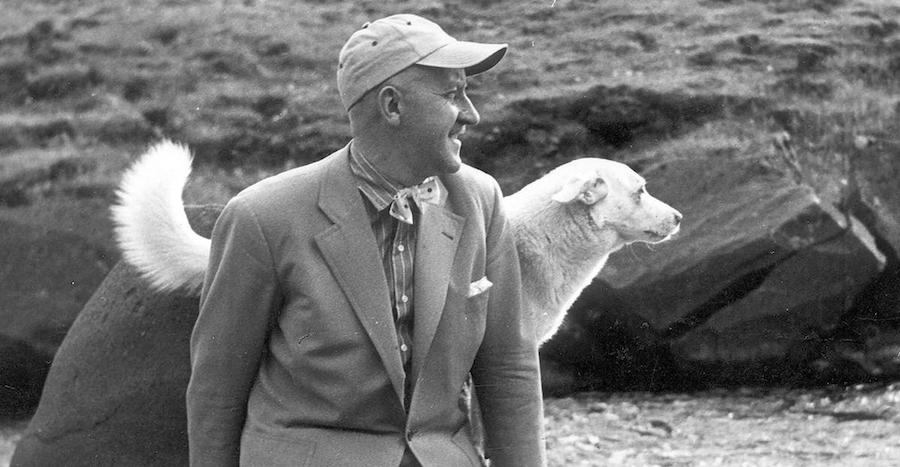He received the Nobel Prize in Literature in 1955: Who is Halldor Laxness?
Nobel Prize-winning Icelandic poet and novelist: He criticized the Soviet regime, which he supported in the 1940s, after the occupation of Hungary. Returning to his country again, Laxness's satire Atómstöðin (Atomic Station, 1948), which he wrote about the American military base established in Keflavík, led to his being blacklisted by the American government.

(23 April 1902-8 February 1998)
He was born in a town near Reykjavik. His passion for writing developed in his childhood, when he listened to traditional folk tales and old epics from his family on their farm.
His first article was published in a national newspaper when he was fourteen years old. He wrote his first novel, Barn náttúrunnar: astarsaga, at the age of seventeen.
While studying theology and philosophy, he learned French and Latin. Traveling to Europe, Laxness converted to Catholicism and became a Benedictine monk at the Abbey of Saint-Maurice-et-Saint-Maur in Luxemburg.
Halldór Kiljan Laxness (born Halldór Guðjónsson; 23 April 1902 – 8 February 1998) was an Icelandic writer and winner of the 1955 Nobel Prize in Literature. He wrote novels, poetry, newspaper articles, essays, plays, travelogues and short stories. Writers who influenced Laxness included August Strindberg, Sigmund Freud, Knut Hamsun, Sinclair Lewis, Upton Sinclair, Bertolt Brecht and Ernest Hemingway.
He went to the USA in 1927, where he met Upton Sinclair and began to produce his first works under the influence of socialism.
Returning to his country in 1930, Laxness married Ingibjörg Einarsdóttir, but they separated in 1936.
He traveled frequently to the Soviet Union. In 1936 he married 21-year-old Auður Sveinsdóttir.
He criticized the Soviet regime, which he supported in the 1940s, after the invasion of Hungary. Returning to his country again, Laxness's satire Atómstöðin (Atomic Station, 1948), which he wrote about the American military base established in Keflavík, led to his being blacklisted by the American government.
Laxness, who visited cities such as New York, San Francisco, Beijing, Bombay, and Cairo during his world tour with his wife, wrote more than sixty works in the genres of novels, short stories, essays, poems, and criticism.
Laxness, who won the World Peace Council Literature Prize in 1953, the Nobel Prize in Literature in 1955, and the Sonning Prize in 1969, passed away in 1998.
In Independent People, Halldór Laxness tells the story of a people who are fond of their independence through the epic struggle for the life of a farmer.
Bjartur is a poor farmer who challenges nature, merchants, and superstitions with his wife, children, dog, and sheep, literally fighting his own world war, on the farm he bought from the landowner where he worked for eighteen years to earn a living. Things never go the way he wants, but he always manages to get up and continue the fight from where he left off.
The novel Independent People is a fascinating classic, the epic story of a person who rebels against all kinds of domination and is determined to overcome every difficulty.
